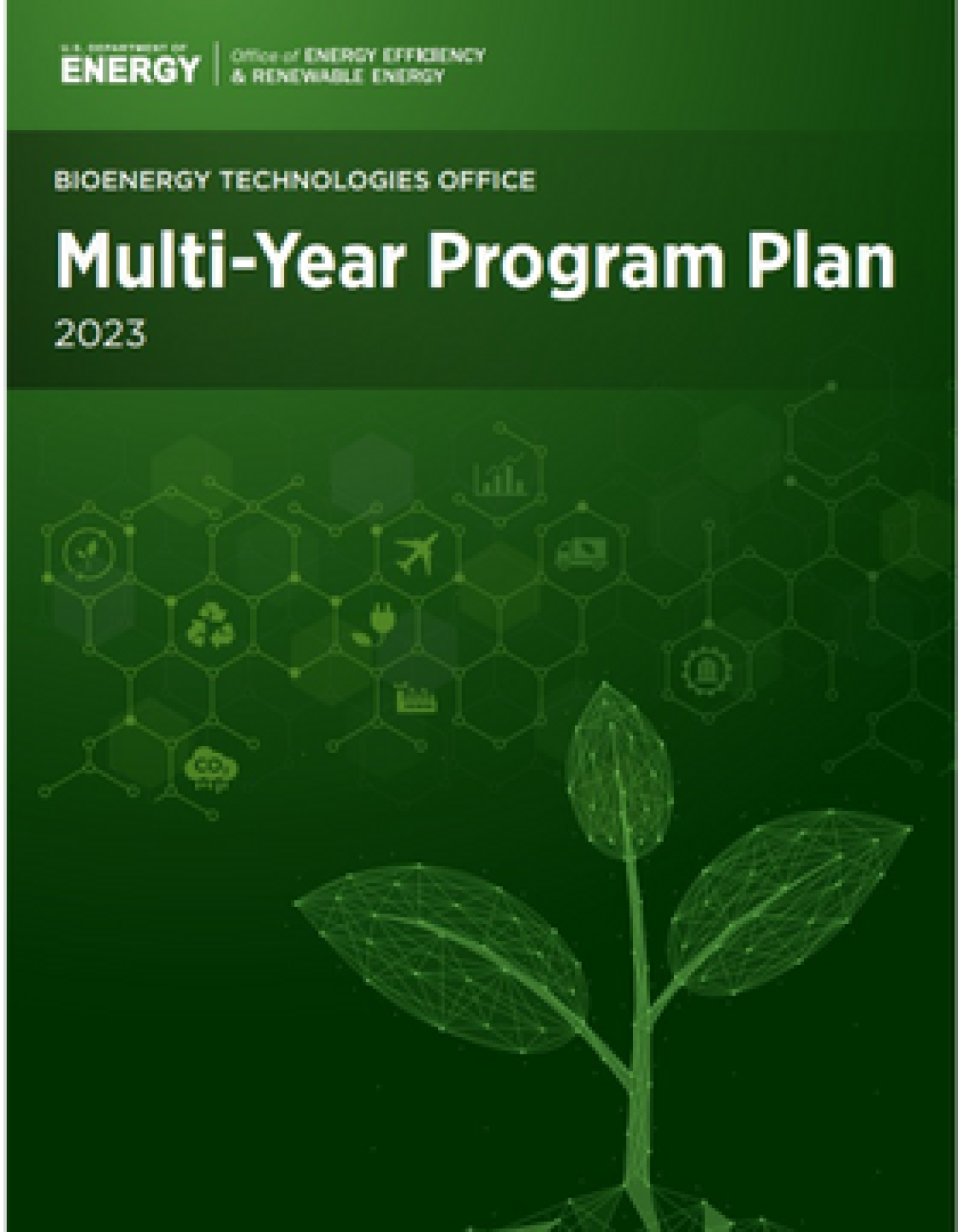I am proud to announce the release of the U.S. Department of Energy (DOE) Bioenergy Technologies Office’s (BETO) new Multi-Year Program Plan (MYPP). The MYPP details our mission, goals, and strategies to enable the widespread adoption of bioenergy...
March 24, 2023
Author: Dr. Valerie Sarisky-Reed, Director, Bioenergy Technologies Office
Read Valerie's bio ►
Meet the other bloggers ►
Return to Bioprose blog ►

I am proud to announce the release of the U.S. Department of Energy (DOE) Bioenergy Technologies Office’s (BETO) new Multi-Year Program Plan (MYPP). The MYPP details our mission, goals, and strategies to enable the widespread adoption of bioenergy technologies offering cost-effective emissions reduction solutions in support of our nation’s renewable energy transition.
Since BETO’s last MYPP in 2016, we’ve made significant technical progress and reframed our priorities to better address our nation’s needs. Our revised mission reflects that primary objective, and I’m excited to rally BETO, our fellow Energy Efficiency & Renewable Energy (EERE) program offices, and our stakeholders around government-wide emissions reduction efforts. We are actively striving to unlock the full potential of our nation’s renewable carbon resources to transform the U.S. economy.
This MYPP provides an overview of BETO’s priority areas for dedicated research, development, and demonstration, and identifies our office’s role in strategically de-risking technologies to accelerate widespread market adoption. Due to the urgency of finding low-carbon solutions for difficult-to-electrify modes of transportation including aviation, marine, and heavy-duty long-haul freight transport, BETO is prioritizing the scale-up of biofuel technologies that can meet those needs in the near term. Specifically, BETO is supporting scale-up of multiple biofuel production pathways, with a focus on synthetic aviation fuels (SAFs) capable of >70% emissions reduction, by enabling the construction and operation of at least four demonstration-scale integrated biorefineries by 2030.
BETO is also well equipped to support the reduction of emissions in the industrial sector through the advancement of renewable chemicals and materials. BETO is working to enable the commercial production of 10 renewable chemicals and materials with >70% emissions reduction relative to petroleum-derived counterparts, supporting over 1 million metric tons per year of CO2 equivalent emissions reductions.
BETO also supports technology research that capitalizes on beneficial uses of renewable carbon resources beyond transportation and industrial applications, such as waste management and environmental remediation, which have inherently positive societal impacts and can help accelerate technology transitions and reduce market barriers for renewable fuel deployment. BETO plans to demonstrate at least three place-based strategies for climate-smart agriculture, waste management, environmental remediation, or other beneficial uses of renewable carbon resources.
Our office is energized by this new framing of our priorities, and we hope the MYPP will be a useful tool for communicating with key stakeholders and the general public about the promise of a bioenergy-fueled future.


